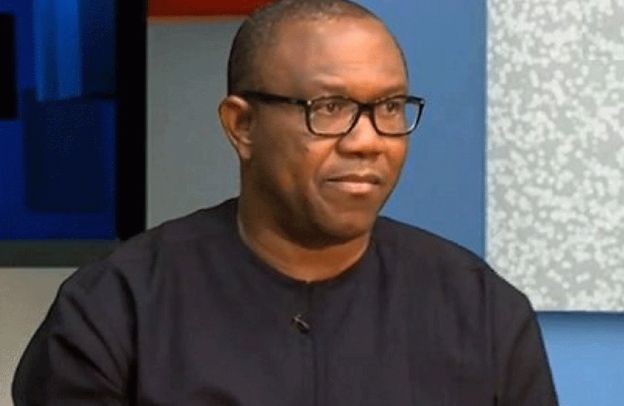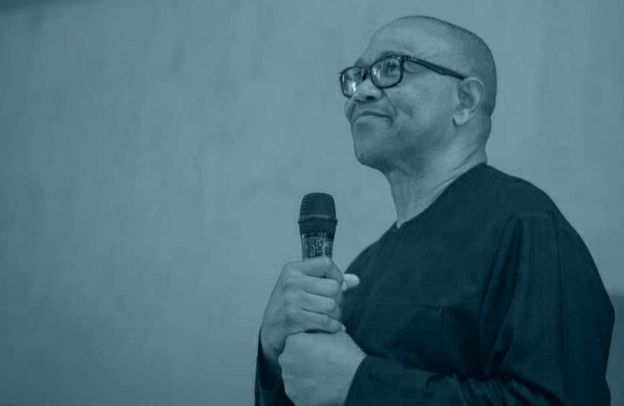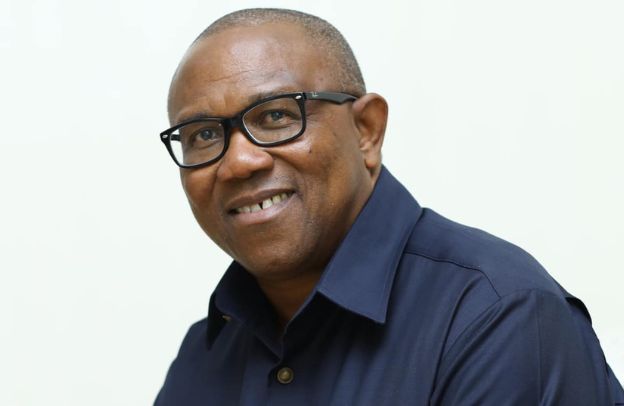Nigeria’s Health Care System Challenges And Peter Obi’s Healthcare Policies

Nigeria’s health sector has been plagued by years of neglect, resulting in a dire situation that persists to this day. Despite numerous promises made over the years, they remain largely unfulfilled, leaving behind a trail of dormant policies and laws awaiting implementation.
Want to learn more about storytelling? Start by downloading the first chapter of The Storytelling Series for Small Businesses.
The sector suffers from a severe lack of coordination, leading to fragmented services that fail to meet the needs of the population. Moreover, essential medical resources are scarce, including drugs and supplies, exacerbating the already critical situation. The inadequate and deteriorating infrastructure further compounds the challenges faced by healthcare providers and patients alike.
Adding to the woes is the glaring inequity in resource distribution, depriving certain regions of much-needed support and exacerbating disparities in access to care across the country.
Nigeria, according to WHO records, ranks fifth among the countries with poor health care systems. That said, Nigerians have an incredibly low life expectancy rate. Getting to 60 years is indeed celebrated among the masses as an achievement because of how broken the healthcare system is.
The poor state of health in the country is further highlighted by the leaders, who would rather fly to developed countries for treatment than level the grounds for the citizenry to experience good treatment.
Challenges Facing Nigeria’s Healthcare System.
A lot of things amass to the deteriorated state of Nigeria’s health care system. These include.
1. Bad Governance:
A myriad of Nigerian leaders, both at the federal and state level, have over time made a flurry of promises on ways to boost the poor state of healthcare in Nigeria. However, these promises are far from being implemented once they’re at the helm of power.
In most cases these leaders establish charity organizations, and programs with the promise of enlightening and providing Nigerians with all they require to grab of taste of good treatment; however, these programs and organizations are a means to siphon public funds into their pockets.
It goes to the extent that these leaders fly their families and themselves to the country with advanced equipment to get treated when sick. Does that account for equality and access to good health as stated by the WHO?
Sadly, these leaders equally embezzle available funds provided by capable individuals in the country.
2. Inflation and Insecurity:
The Nigeria health care system has been greatly challenged. However, its challenges are not just stereotyped to the problems arising from within. Inflation and Insecurity in the country are some of the problems the Nigerian healthcare system is facing. Ekenem Isichei, the chief executive officer of ACIOE associates stated, “insecurity and rising inflation are mitigating against uptake of healthcare services by people in the communities.”
The situation whereby the administration fails to provide proper security for her citizens and the country at large discourages healthcare services in the communities. Both doctors and patients would have the fear to move about their daily activities. Patience needs a good atmosphere to move to the hospital, the same applies to the Doctors and Nurses.
3. Problem of poor funding:
The Nigerian healthcare service is not meeting up to the required standard because of poor funding. Nigeria has still battling with the provision of proper healthcare equipment for her hospitals since independence. This has increased the mortality rate in the country. The rate of Cancer patients has greatly increased in Nigeria, there are no adequate equipment and technology for its treatment.
If the Nigerian government would pay more attention to her healthcare sector because it’s one of the most important aspects of the country, then the country would be better, and the leaders would stop flying abroad for treatment. At this point, Nigeria would be a better place to stay.
4. Quack health personnel:
Many hospitals in Nigeria do not have experienced health experts who could handle patients in critical conditions. Some experts give up on patient conditions only because they can’t give a solution to the health conditions of the patients with their present knowledge.
Where do we find health health research experts who have results in what they do? Where do we find passionate health experts who are not just there for the money? All these are questions posed to the Nigerian healthcare system.
5. Lack of Incentives for medical professionals:
The Nigerian medical professionals are highly underpaid. Salary is a way of motivating and encouraging workers. In Nigeria where workers are not well paid, it discourages workers from working with their heart. It also discourages students who aspire to be health experts from losing interest in striving to go further, considering the poor incentives given.
Hence, brain drain. Nigeria records the highest number of Brain drains robbing the country of its best and brightest that would have impacted the Healthline of the country. It’s no surprise that Nigeria’s experts in the medical field make record-breaking achievements in their resident countries.
6. Lack of health infrastructure:
Infrastructures are very important in Hospital environments. Good healthcare facilities like clean buildings, health machines, clean pipe-borne waters within the hospital premises, etc., all help in creating a good atmosphere for good medical operations. The presence of health infrastructural facilities helps in improving the quality of health services in the hospital.
Peter Obi’s Health Care Policies.
Having seen the devastating state of Nigeria’s healthcare system, people looked forward to knowing the policies Obi would institute to help revive the sector.
In his manifesto, Obi stated ways in which he would revitalize the sector. Obi stated that to revitalize this sector, he will provide health insurance to about 133 million Nigerians, including children, pregnant women, and senior citizens. Also, he said that more than 100 million Nigerians will have access to free medical care.
He wrote, “Given the role of health in reinforcing education in the measure of productivity, my leadership will pay serious attention to the health system by ensuring that at least 100 million poor Nigerians have access to free medical services through an integrated health insurance scheme.”
The building of hospitals and paying hourly wages to healthcare workers were also part of his policy.
“All of us must be treated here,” Obi stated during a press conference after highlighting ways in which he tackled Anambra state’s poor health sector. He assured in his manifesto that more funds would be allotted to the sector as it’s been done in other countries like Indonesia, India, etc.
Conclusion on Nigeria’s Health Care System Challenges And Peter Obi’s Healthcare Policies
Indeed, the poor health sector characterized by a lack of infrastructure, incompetent health workers, expensive drugs, etc. in Nigeria can be stopped by establishing and implementing policies that will not only benefit the rich but the poor as well.
That way life expectancy rate in Nigeria will increase, thus leading to general growth and honing of the country’s human resources. As they say, health is wealth and Nigeria’s wealth is dependent on the survival of its citizenry.
Want to learn more about storytelling? Start by downloading the first chapter of The Storytelling Series for Small Businesses.





